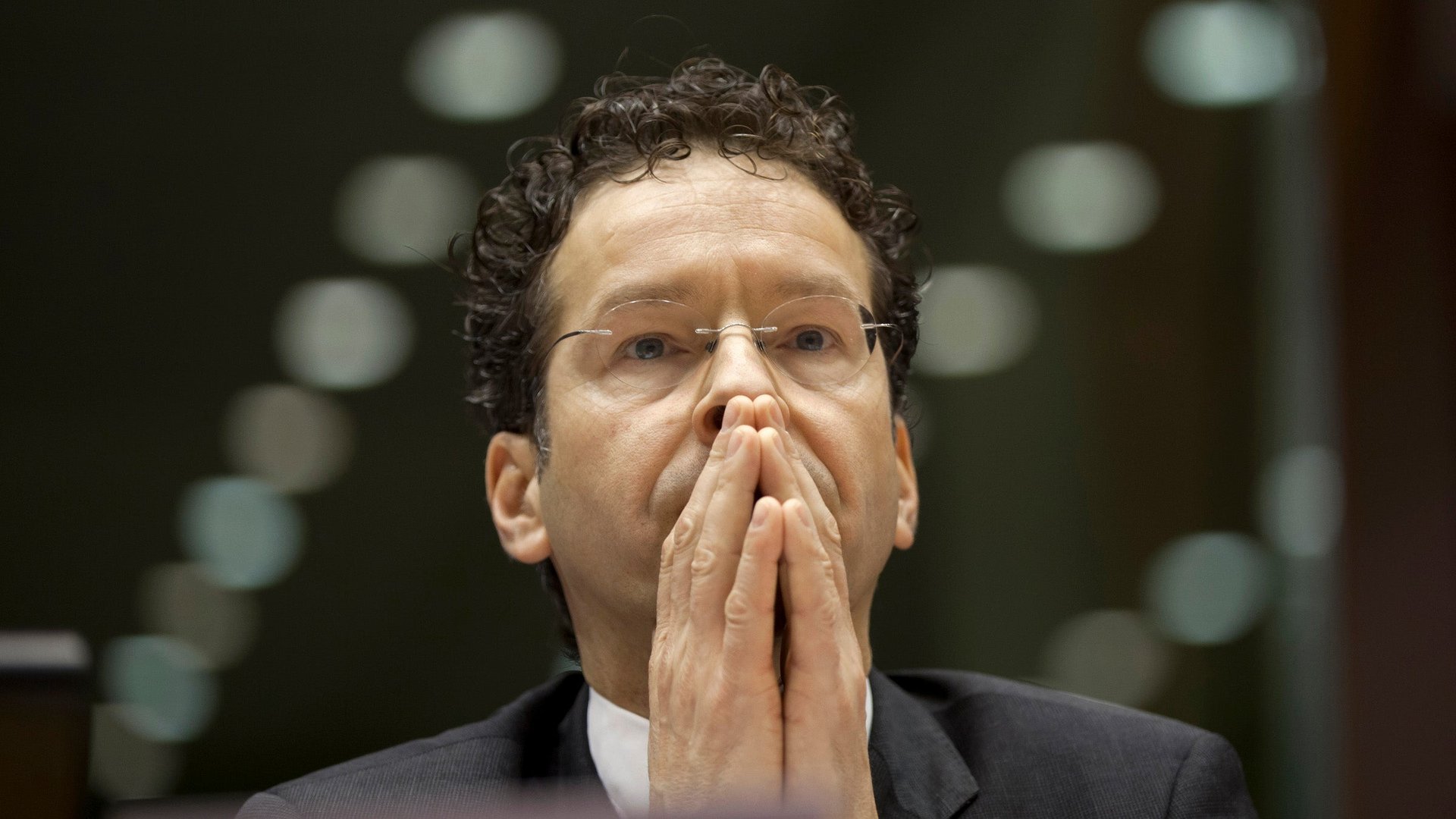The existence of credit risk is currently blowing Europe’s collective mind
You know you’re having a big day as the head of the Eurogroup when shocked Financial Times writers out and demand your resignation.


You know you’re having a big day as the head of the Eurogroup when shocked Financial Times writers out and demand your resignation.
That was a reaction to Dutch Financial Minister Jeroen Dijsselbloem’s discussion of the final (for now) Cyprus bailout plan, which certainly included more satisfaction than one should take from the destruction of a tiny economy. What’s got the financial world up in the arms is the suggestion that Cyprus might offer a useful plan for the future:
What we’ve done last night is what I call pushing back the risks…If there is a risk in a bank, our first question should be ‘Okay, what are you in the bank going to do about that? What can you do to recapitalize yourself?’. If the bank can’t do it, then we’ll talk to the shareholders and the bondholders, we’ll ask them to contribute in recapitalizing the bank, and if necessary the uninsured deposit holders…
The FT worries about bank runs: Customers at banks in Spain and Italy and France now realize that if their countries and banks end up in need of further financial assistance to stay in the euro zone, the private sector might have to take losses. This is already causing bank stock prices to drop, prompting a quick walk-back (pdf) that left everyone confused.
I think this sums up my take:
This is what Washington politicians call a “Kinsley gaffe“—Djisselbloem said something true that he shouldn’t have.
The fact—and the fear—is that the Eurogroup is changing expectations again: When they bailed out Greece, creditors got restructured, but Europe promised it was a one-time only thing. The ECB bailout of Spain was different: You guys recapitalize the banks, creditors stay whole, and the ECB provides the financing. When Cyprus, and its unique role as Russia’s offshore bank, came along, European leaders responded by reverting to the Greek model: Creditors got “bailed-in” and had to take losses. If nobody believes the Eurogroup—which is the organization of euro zone finance ministers—when they say that Cyprus is special, the next time a peripheral European country gets in trouble, people will rush their money out the doors.
The problem is that while Cyprus is special, it’s not that special. Germans don’t want to bailout Russian depositors, but they also don’t want to bail out anyone. The Spain model isn’t working and the expectation that it will means disappointment. A euro zone mired in recession is not going to be able to out-grow its debt problem with a weak financial system. Those banks needs to be recapitalized, and to avoid the problem of a fractured currency, it needs a banking union, something the Eurogroup has already begun work on. Recognizing reality may make markets nervous, but to solve the crisis, creditors, private or public, will eventually have to pay up.
It’s no surprise that Dijisselbloem would make this point: His country just nationalized an insolvent bank and, you guessed it, bailed-in some depositors and creditors to avoid putting the whole burden on taxpayers. Denmark did the same twice last year. Even the FT notes that “the world’s changed for bank creditors in any case… there was already a bail-in directive on its way for Europe.”
That doesn’t make Cyprus ideal by any stretch of the imagination. Cypriots would probably be better off leaving the euro altogether. And the haphazard assembly of its bailout has left only two real principles intact: the euro will not be allowed to fail, and creditors will likely need to help with that. Balancing crisis management (stopping bank runs) with reform (recapitalizing banks) is never easy, but after four years it might be worth thinking more clearly about the tensions between the two.